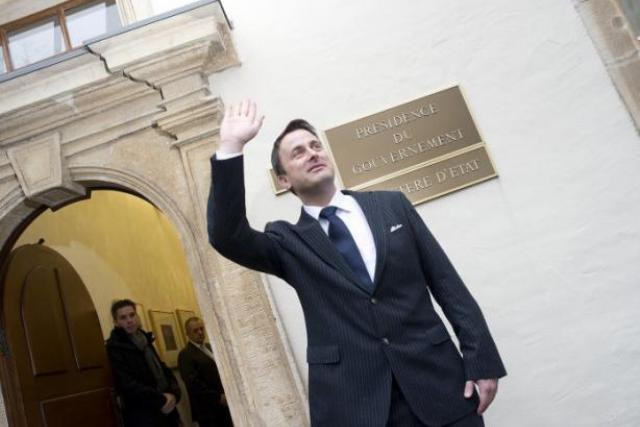Delano: When was your party first established?
Demokratesch Partie: The Demokratesch Partie was initially known as the “Groupement Patriotique et Démocratique” (the patriotic and democratic group) and was founded on 2 June 1945. In 1955 the party changed its name to what we know today.
Delano: Who founded it?
DP: Among the founders were Lucien Dury, Emile Hamilius and Eugène Schaus, who was also chairman.
Delano: Why what it set up? Was there a key event that led to its establishment?
DP: The party was formed following the Second World War and the fight against oppression with the conviction that the horrendous experiences of much of the liberated population should never be repeated.
Delano: What were its guiding principles at that time?
DP: It had the goal of representing the interests of resistance activists in the post-war period and of cooperating politically in the material and moral reconstruction of the country.
Delano: How have they changed over the years?
The DP is always focused on the liberal values of freedom, tolerance, responsibility, progress and solidarity. We believe in solidarity between citizens and the protection of our environment.
We defend the interests of citizens today without losing sight of future generations. We want our financial and natural resources to be consumed in a sustainable and responsible way. Politics has a duty to respect the generational pact.
We want a strong economy that encourages the creative forces of our country. We have confidence in the entrepreneurial spirit and in the creative strengths of our country.
However, we oppose any form of limitless capitalism and believe that the economy is not an end in itself but must be must be at the service of the people. That's why we advocate a social market economy.
The DP encourages social and societal progress. We want a free society in which everyone can evolve independently of their sex, origin or religion and can organise their lives freely and without constraint.
For the DP, the free choice of life models must also be at the centre of family policy. We do not want to impose an ideal model of life together, but to lay the foundation for everyone to define their own way of life.
We fight against social inequalities. We do not want to administer social problems, rather we want to help people get out of their social difficulties by strengthening their innate abilities.
As such, we want to give people the same opportunities to succeed in school and to start their lives. Education is the guarantor of each individual's independence and self-determination. Every child has the right to enjoy optimal access to education. Origin or social background must never be the determinant of success.
We also want to protect our natural environment for now and for future generations. We want a global consumption of natural resources that meets the principles of sustainable development and to free ourselves from the dependence of fossil fuels with renewable energies.
Delano: Briefly, why should voters select your party in October?
The DP is ready and determined to continue to take responsibility for our country. Our responsible and forward-looking policies can be illustrated by 5 central themes:
- we will ensure that people can better reconcile their private and professional lives;
- the DP places particular emphasis on future generations. That is why quality of education is the top priority for us, both inside and outside the school;
- we want to maintain and expand the diverse identity of our country, as it benefits all people living and working in Luxembourg;
- it is particularly important for us that the enlargement of our infrastructure is given considerably more financial resources and can, thus, be implemented more quickly;
- the DP commits to sound public finances and a responsible fiscal policy.
Please note that Delano is introducing the political parties for your information only, not to promote one over the other.
